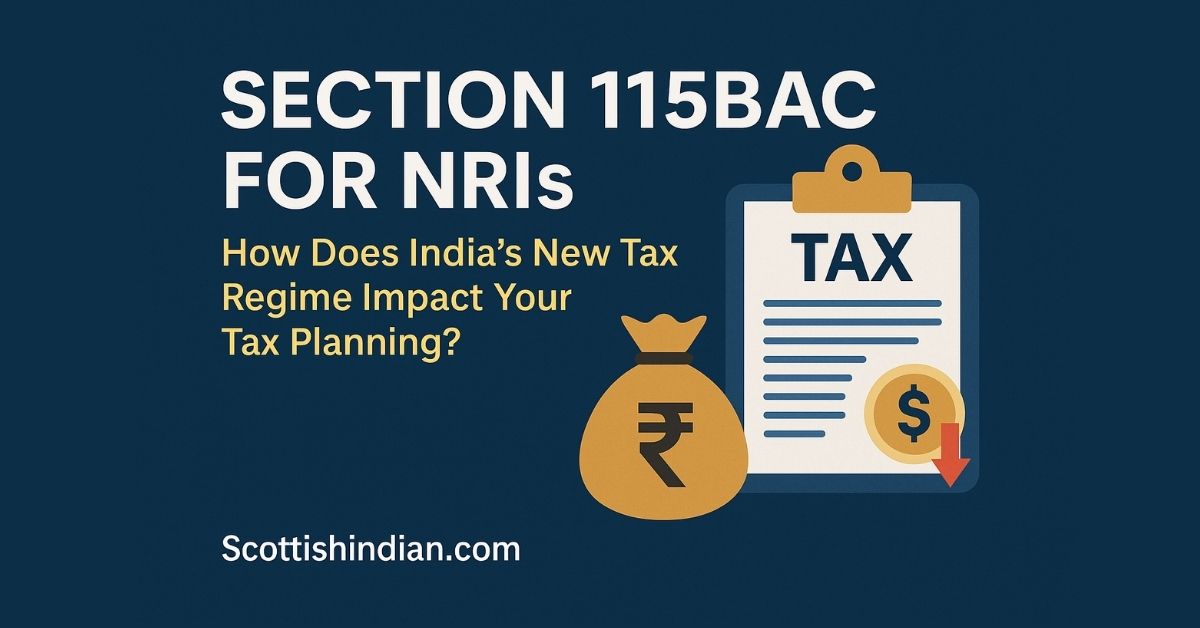NRIs, your tax planning just got more complex. The Indian government’s new default tax regime under Section 115BAC for NRIs is reshaping how you manage your income, especially if you earn abroad or have ties across borders.
In this blog, we unpack what this change means for NRIs, how it affects your wealth, and where to go for trusted help.
What Is Section 115BAC?
Section 115BAC is now India’s default tax regime — applicable unless you specifically opt out. It offers:
- Lower tax rates across income slabs
- A higher basic exemption limit (₹3 lakh vs ₹2.5 lakh)
- But no major deductions, like under 80C or 80D
For NRIs, especially those managing dual incomes or considering relocation, choosing the wrong regime could mean losing out on lakhs over time.
Why Section 115BAC for NRIs Matters More Than Ever
If you’re an NRI earning in the UK or overseas but filing taxes in India (e.g., on property, interest income, or capital gains), Section 115BAC might apply by default.
Here’s what you should consider:
- Do you benefit more from deductions like 80C (PPF, ELSS, etc.)?
- Are you aware that you must opt OUT if you prefer the old regime?
- Have you reviewed your NRI tax residency status for the financial year?
Many NRIs are unaware that Section 115BAC for NRIs applies by default unless opted out. This lack of clarity could cost lakhs in unnecessary tax payments.
Example: The Cost of Not Choosing Wisely
Imagine an NRI with ₹15 lakh in total income. Under the old regime, with deductions, their taxable income drops significantly. But under 115BAC, they lose those deductions — potentially paying ₹40,000–₹80,000 more in taxes.
Mistake? Choosing the default without understanding the impact. So,
✅ Reassess your tax strategy
✅ Understand your residency status each year
✅ Check if you need to file under old or new regime
✅ Work with an expert who understands UK-India tax implications
For deeper insights into Section 115BAC for NRIs, and to learn which deductions still apply, reach out to financial advisors who understand both Indian and UK systems.
Need Personalised Financial Advice?
If you’re an NRI trying to navigate India’s updated tax policies, you’re not alone. With changes like Section 115BAC, it’s important to stay informed. For more guidance on how these rules impact your UK-India finances, check out our feature on Vibrant Financial Services. Need help deciding which tax regime suits your situation? Visit our NRI Tax Resources for curated content designed for the Indian diaspora.
👉 Contact Kadambi Muralidaran, Executive Director of Vibrant Financial Services, via our business directory on ScottishIndian.com. With over a decade of cross-border financial experience and authorisation from the UK’s Financial Conduct Authority (FCA), Kadambi Muralidaran provides culturally aligned, non-advisory financial solutions trusted by the Indian diaspora.






